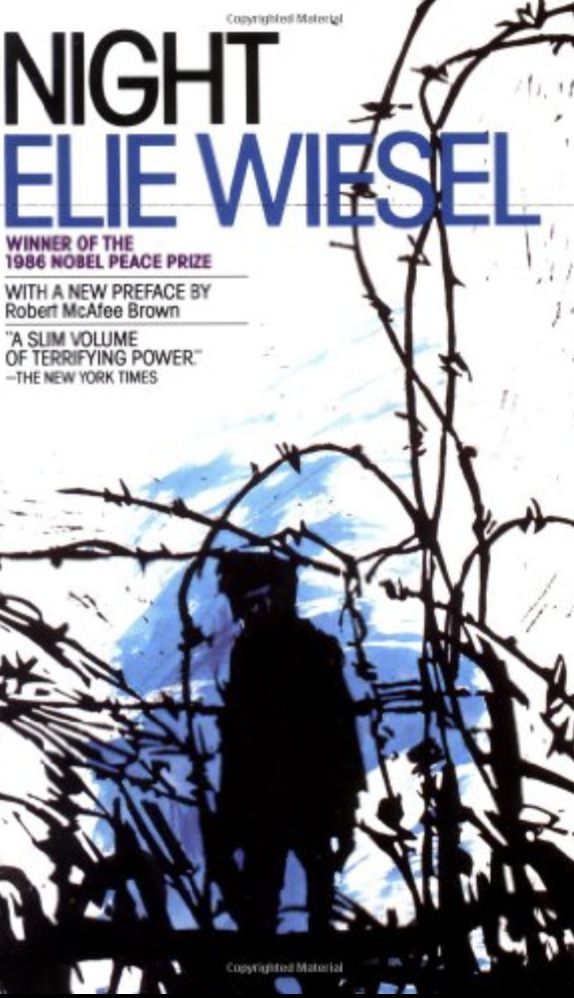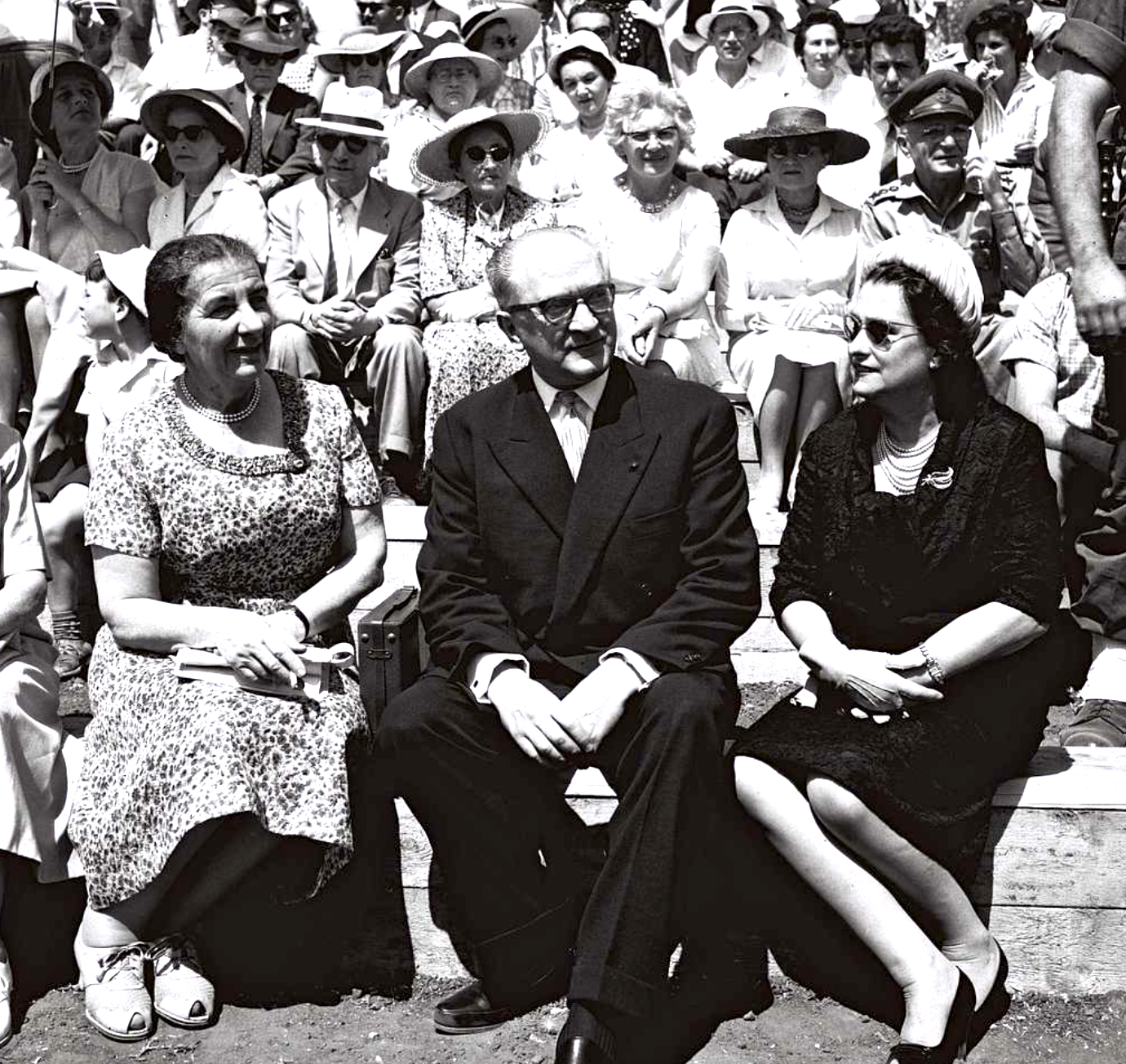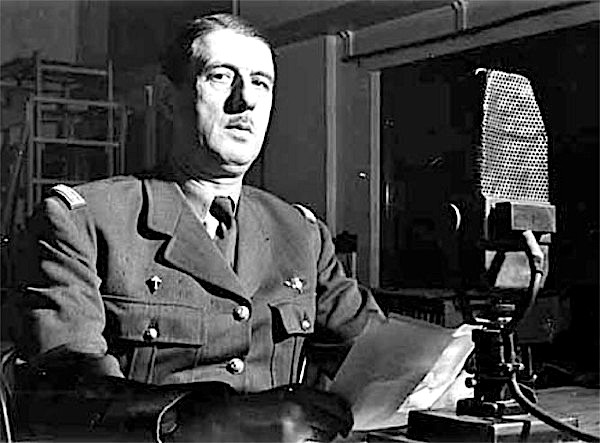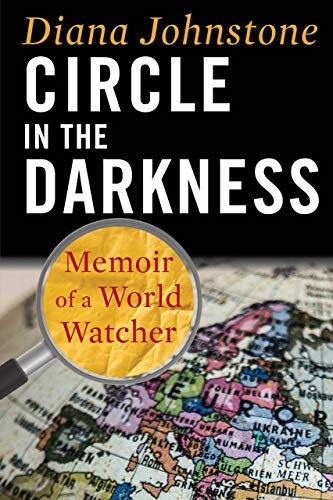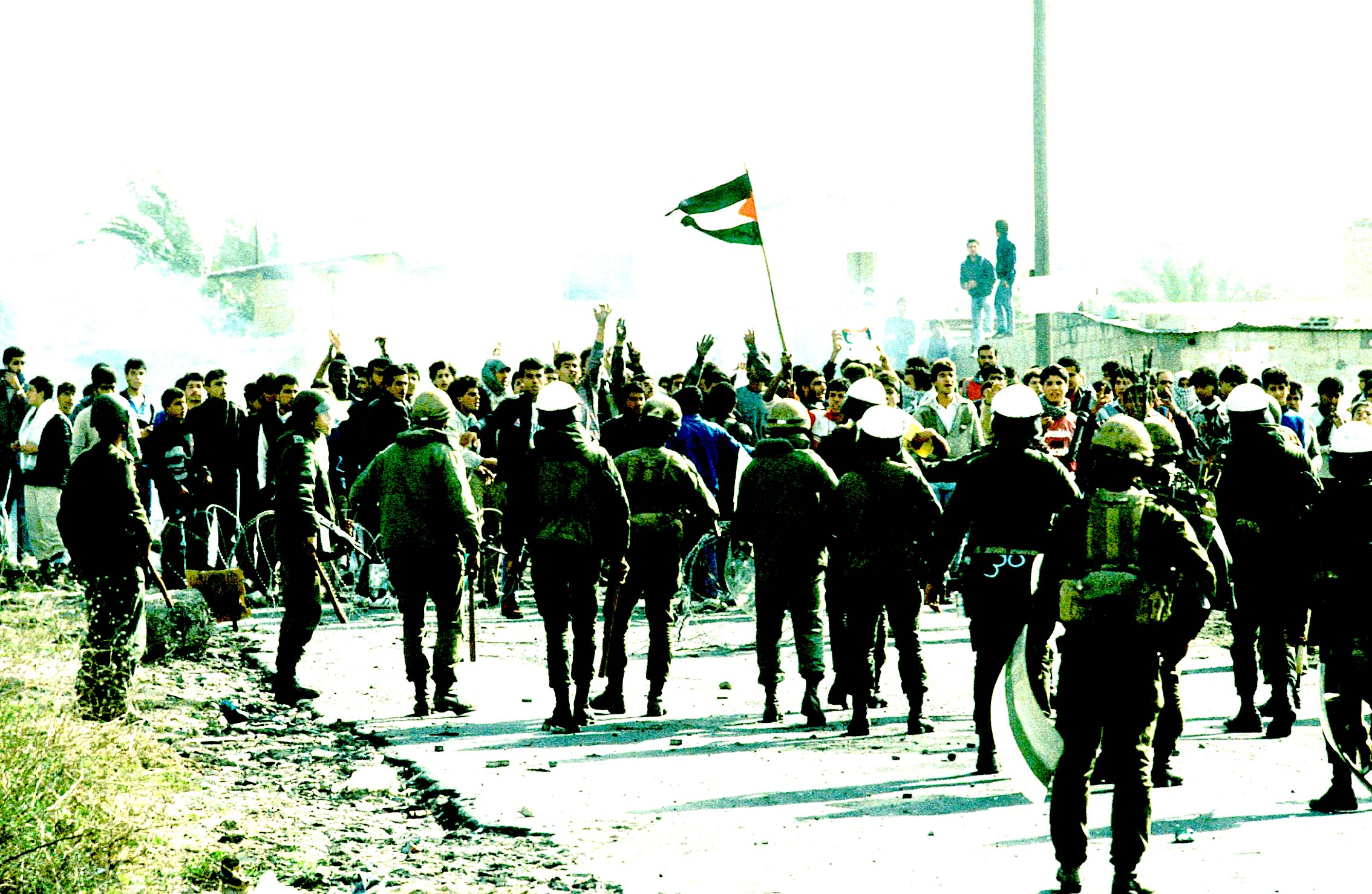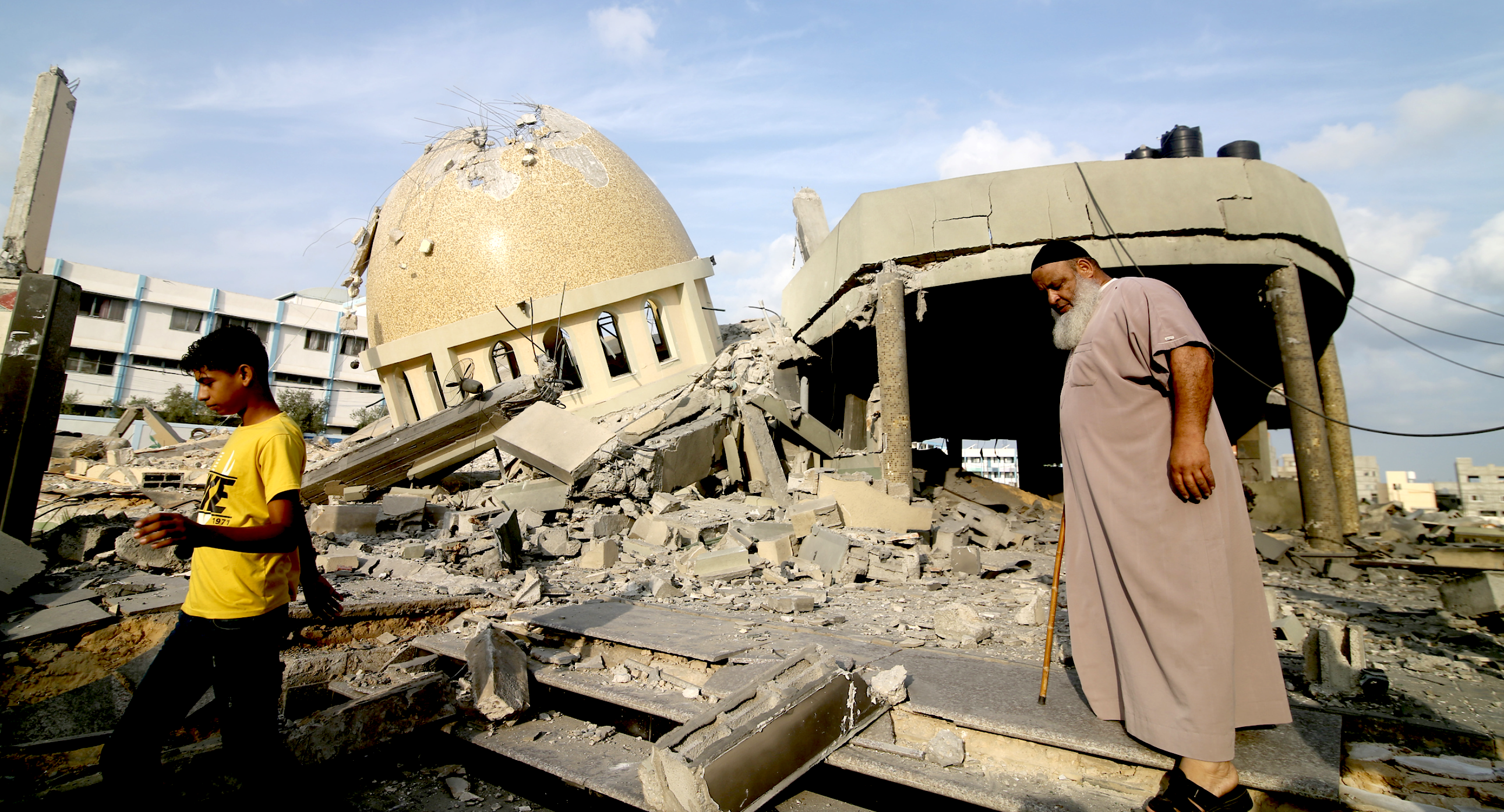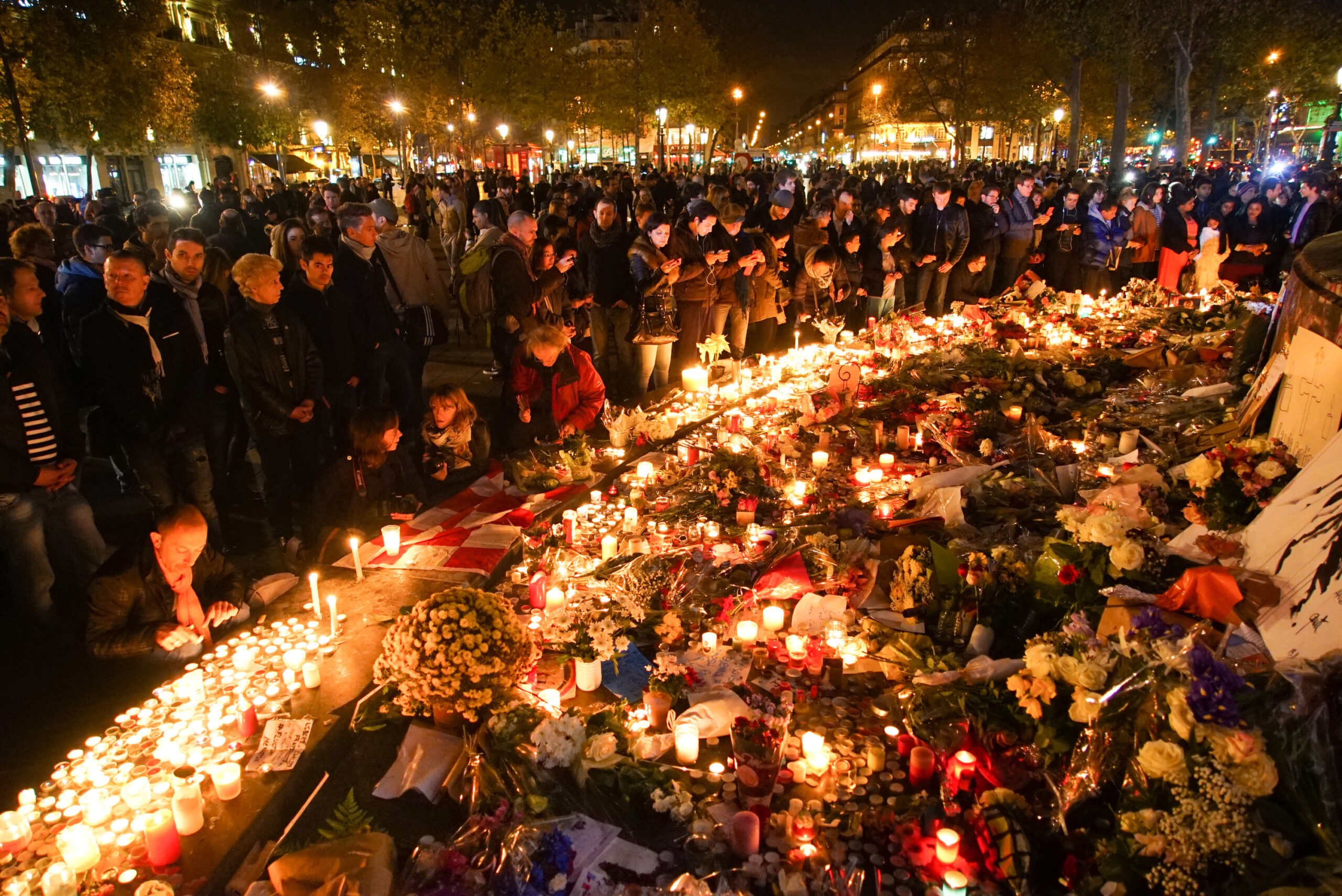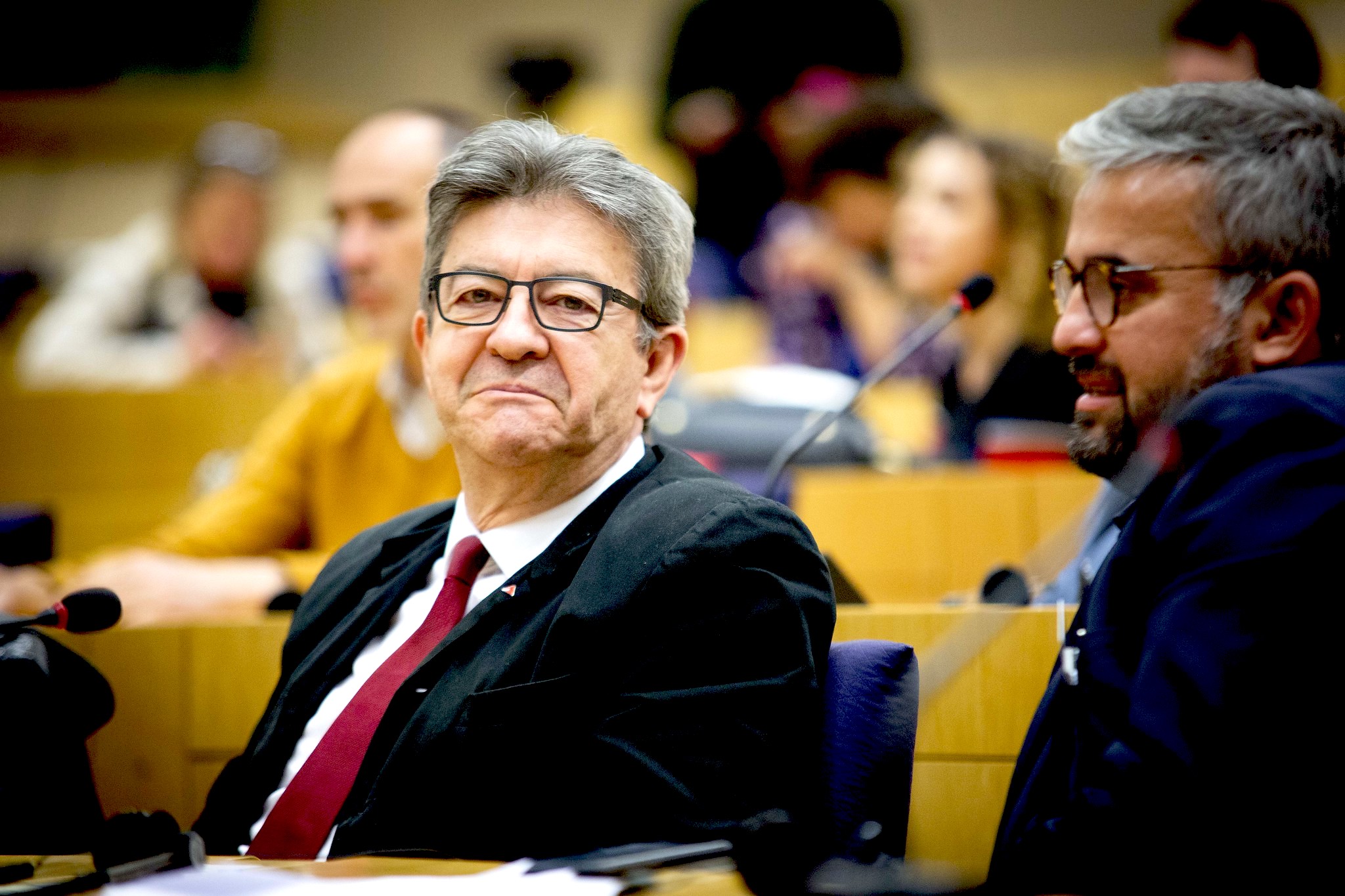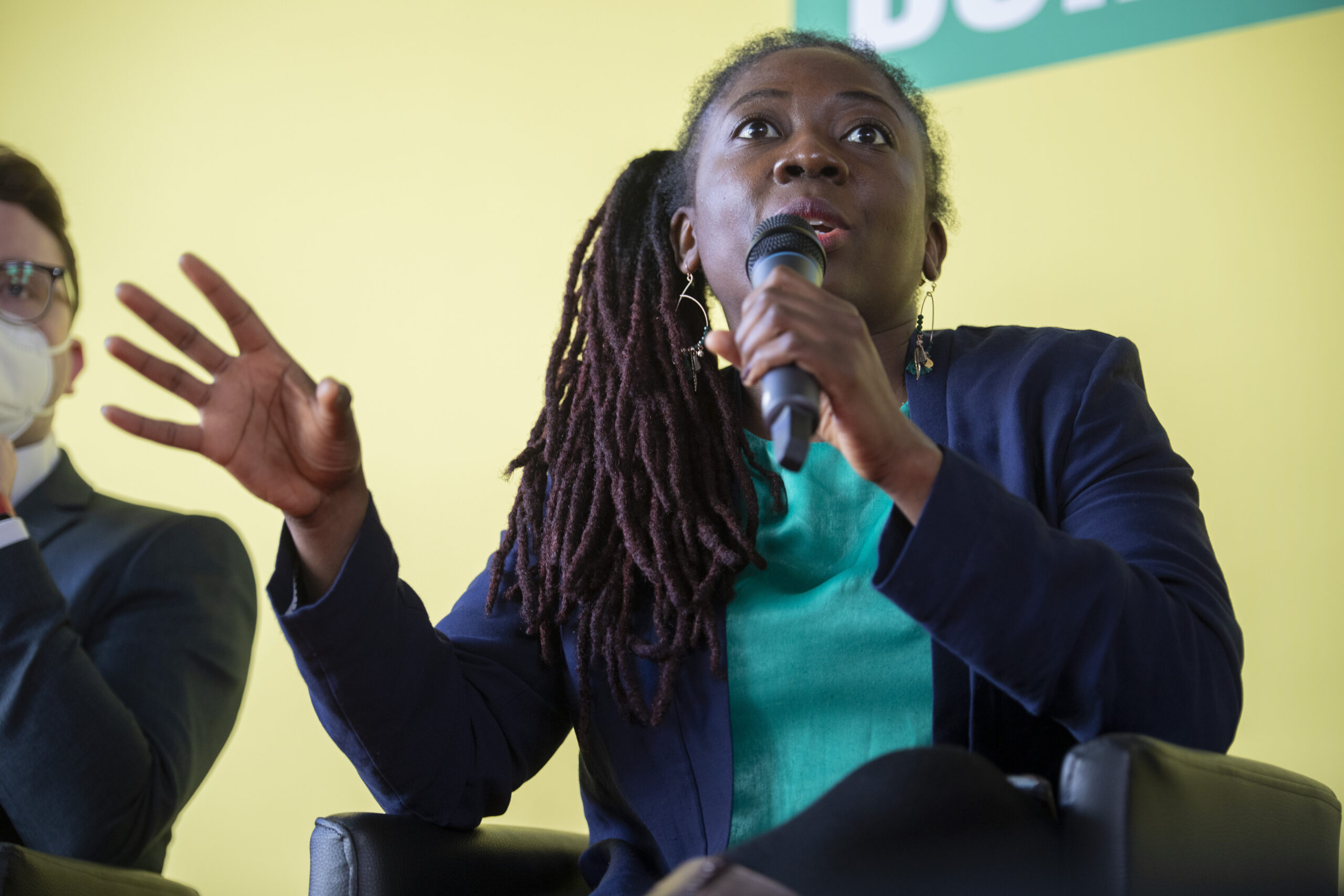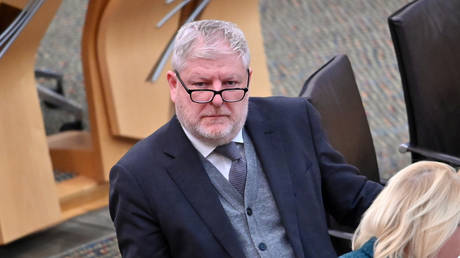Genocide Meets French Devotion to Israel, by Diana Johnstone
Israel’s loyal supporters in the West combat rising world indignation over the suffering of the Palestinian people by changing the subject.
When Gazan families are buried under the rubble of their homes, it’s not about the plight of the dispossessed Palestinians; it’s about eternal Jewish victims; it’s about “Islamic terrorism;” or it’s about a threat to “Western values.”
That is the line taken by most of the French media and political class.
Or there is recourse to Biblical story-telling, featuring vengeance, ethnic slaughter and prophecy of doom. In Israel, Prime Minister Benjamin Netanyahu declares a struggle between good and evil:
“We are the people of the light, they are the people of darkness and light shall triumph over darkness . Now my role is to lead all Israelis to an overpowering victory… We shall realize the prophecy of Isaiah…”
In the United States of America, the crazed prophecies of the Israeli leader find support from an American variant of Judeo-Christianity, more Judeo than Christian, whose followers are taught to believe that gentle Jesus will zoom back to earth as a murderous Avenger while his faithful float up to heaven.
France & the Shoah
Skeptical France is very far from such fantasies. French support to Israel is longstanding and political, but tinged with semi-religious devotion rooted in recent history.
France is officially, even ostentatiously, a secular nation, considerably de-christianized over the past two hundred years.
To a unique extent, over the past half century, this religious void has been filled by the sacred remembrance of the Shoah, as the Holocaust is usually called here.
It all began in 1954 when 27-year-old Jewish journalist named Eliezer Wiesel met the 70-year-old Catholic novelist François Mauriac in Paris.
Mauriac was deeply moved by Wiesel’s “resurrection” from his experience as a prisoner in Auschwitz, seeing him as a Christ figure. For Mauriac, the sacrifice of the Jews recalled the Crucifixion of Jesus.
With help from the prominent French writer, Wiesel transformed his copious Yiddish notes into a French memoir, La Nuit (Night), the testimony that transformed him into a major spiritual figure of the post-World War II era.
It was Mauriac, the devout Christian, who saw in Wiesel and his people the parallels with Christianity, which as the Shoah was destined to take on the attributes of a state religion in France as memories of the Nazi occupation were transformed into sacred myth.
An Alliance Against Arab Nationalism
When the Nazis invaded France, there were approximately 320,000 Jewish people living in France, including a large number of foreign nationals who had fled from anti-Semitism in Eastern Europe.
Those unfortunate exiles made up the bulk of the 74,000 Jews who were brutally rounded up and deported under German occupation. These deportations are the principal factual basis for what developed into a sense of national responsibility for the Shoah comparable to that of Germany itself.
However, of all Nazi-occupied countries, France is the country where the largest percentage of Jews escaped Nazi deportations. An estimated 75 percent of Jews survived the occupation without being deported, including around 90 percent of Jews with French citizenship.
The reasons for this are controversial, but one result is that France has the largest Jewish population in Europe today — around half a million, the third largest Jewish population in the world, although far behind Israel or the United States (with around 7 million each).
In recent years, many Jews have moved to Germany from Russia and from Israel itself (118,000 altogether), making France and Germany the home to more Jews than any other member state of the European Union. They are also the countries where institutionalized repentance for the Shoah is most developed.
A difference is that a number of prominent Jews in Germany are sharply critical of Israel (which may get them in trouble with the law), whereas the French Jewish community is more solidly Zionist. The politically influential Representative Council of Jewish Institutions in France (CRIF), a sort of French AIPAC, fiercely defends Israeli interests.
A significant peculiarity of France is that Europe’s largest Jewish population is cohabitating with continental Europe’s largest population of Muslim origin, mostly Arab. Although France officially avoids ethnic or racial counting, this population is estimated at around 15 million.
While politically disorganized, this community is assumed — especially by Jewish community leaders — to be hostile to Israel. The potential for conflict between these two communities — one very small and very influential, the other very large and disparate — has for years haunted French political leaders.
France & Arab Nationalism
Guy Mollet, by then former prime minister of France, with his wife, on right, and the Israeli politician Golda Meir, on left, during Israel’s Independence Day Parade in Tel Aviv, May 13, 1959. (Wikimedia Commons, Public domain)
When the Jewish State was just a dream, it was seen by some as a sort of socialist project, based on the kibbutz. Building on long standing friendly relations between French Socialists and Zionism, France was the closest Western ally of the new State of Israel.
In 1954, the government of Socialist Prime Minister Guy Mollet agreed to sell Israel whatever military equipment it wanted. France even helped Israel develop nuclear weapons.
At that time, Tel Aviv and Paris were allied against Arab nationalism, inasmuch as secular, left-leaning Arab States (Egypt, Syria, Iraq) sympathized with both the Palestinians and the rising national liberation movement in French Algeria.
But this changed under Charles De Gaulle, who conceded Algerian independence in 1962, put an arms embargo on the region in 1967 and sought to build balanced relations with Arab States as part of an effort to develop friendly, post-colonial relations with the Global South.
In June 1967, Israel’s lightning victory in the Six Days War was celebrated in the streets of Paris by joyous horn honking. But President De Gaulle had opposed the Israeli expansion and called for a sustainable peace based on evacuation of territories conquered by Israel and mutual recognition by the belligerent states.
In a remarkable press conference on Nov. 27, 1967 in Quebec, De Gaulle expressed ongoing support for the existence of Israel as a fait accompli while expressing strong misgivings about the future of Jewish rule over Palestinian territories.
After recalling the shared admiration for the Jewish people and sympathy for their suffering, De Gaulle observed, in respect to the creation of a Jewish state, that:
“Some even dreaded that the Jews, up to then dispersed, but who remained what they had always been, that is an elite people, self-confident and domineering, when once reunited on the site of their ancient greatness, might come to transform the highly moving wishes expressed for nineteen centuries into an ardent and conquering ambition.”
Charles de Gaulle in London delivering a BBC radio broadcast in 1941. (Wikimedia Commons, Public domain)
De Gaulle recalled that he had promised that France would defend Israel from any Arab attack, but implored Israel not to use its advantage to attack its Arab neighbors.
“We know that France’s voice was not heard. Israel having attacked, in six days of combat seized the objectives it wished to attain. Now, on the captured territories, it is organizing an occupation which cannot go on without oppression, repression, expulsions, and a resistance to all that which it will call terrorism.”
In response to these statements, prominent Jewish intellectuals and community leaders ceased to revere De Gaulle as the leader of the Resistance. Around this time, the Resistance itself as national patriotic myth was rapidly discredited as the public imagination of Nazi Occupation came to center on the Holocaust.
Cinema played a role. In 1967, the documentary film by Marcel Ophuls, “The Sorrow and the Pity”, convinced audiences that collaboration rather than Resistance had overwhelmingly dominated occupied France. The film had a strong impact on public opinion, not least on young leftists who the following year carried out a libertarian revolt targeting the two political heirs to the Resistance: the French Communist Party and President Charles De Gaulle.
In the revisionist mood of the time, national pride stemming from the Resistance gave way to national shame over the deportation of Jews. This guilt became a sort of public ritual for audiences who watched Claude Lanzmann’s nine-hour long documentary “Shoah,” released in 1985. In 1990, France adopted a measure called the Gayssot law which can lead to heavy fines and even imprisonment for any questioning of the official version of the Holocaust.
As I wrote in my book Circle in the Darkness, heresy defines religion. A French citizen can deny the existence of Napoleon, or any other historic event, but any questioning of the official version of the Shoah is blasphemy. Thus by sacralizing a unique historic event, the Gayssot law in effect established the Shoah as a state religion.
The Shoah is celebrated officially and unofficially, not only in the annual Shoah commemoration but almost constantly in school rooms, trips to Auschwitz, radio and television programs, books and films. It has de facto replaced Christianity, which had succumbed to laïcité (secularism) over a century ago, as the State religion. It has its martyrs and saints, its holy scripture, its rituals, its pilgrimages, everything that Christianity had except redemption.
Expanding Role of Political Islam
Meanwhile, France’s post-war industrial buildup drew thousands of workers from Algeria.
It wasn’t until new laws in the 1970s allowed “family reunion” that regrouping of foreign workers with wives and children began to create large immigrant neighborhoods, especially in the suburbs of Paris and other large cities, with their own ethnically distinct religious practices, food and dress, especially veiled women, clashing visibly with French customs.
The growth of these communities had a strong impact on the political environment. The National Front, a coalition of far right groups led by Jean-Marie Le Pen, called for stopping immigration, and the new left issued from the May ’68 movement became their champions.
In the early 1980s, in order to accommodate European unification, Socialist President François Mitterrand abandoned the program of nationalizations and social measures for which he had been elected in coalition with the French Communist Party (PCF).
The PCF left the coalition and subsequently lost its influential role both in assimilating foreign workers and in opposing unlimited immigration. The Socialists thereupon adopted human rights and antiracism as their defining issues, condemning opposition to immigration as racist. Accused of anti-Semitism, the National Front was condemned as a pariah with no fit place in the Republic. This condemnation was ensured by Le Pen’s conviction under the Gayssot law for having stated, in an interview, that gas chambers were “a detail of World War II.”
While the left has increasingly adopted an “open border” acceptance of immigration, it has increasingly advocated measures to ban Muslim customs seen to violate the official French doctrine of laïcité.
French laïcité was institutionalized by the 1905 law on the separation of Church and State, which finally deprived the Catholic Church of its traditional role in education. In response to an apparent growth of religious practice among younger Muslims, laïcité was revitalized by banning religious identity signaling in public schools, notably by prohibiting school girls from wearing Muslim headscarves to cover their hair. This focus on female dress later produced a ban on wearing the burka in public. While intended to promote cultural assimilation, such measures can also feed Muslim resentment at being a discriminated minority.
Western Schizophrenia Toward Islam
Palestinian protestors confront Israeli troops in Gaza City in 1987, during the First Intifada. (Efi Sharir / Israel Press and Photo Agency, Wikimedia Commons, CC BY 4.0)
In 1979, Western attitudes toward Islam entered their drastically schizophrenic period, decrying the Islamic Revolution in Iran as a political and human rights disaster, while giving full support to Islamic Mujahidin in neighboring Afghanistan.
French political exhibitionist Bernard Henri Lévy was a most zealous supporter of Afghan Muslims opposing the Russian incursion which failed to save modernizing progressive forces in Kabul.
It was President Jimmy Carter’s chief strategist Zbigniew Brzezinski who saw the potential of militant Islam to defeat Soviet influence in Central Asia. In the 1990s, the United States secretly backed illegal arming of Mujahideen to fight on the Islamic side in Bosnia, against Serbia, considered in Washington a miniature Russia. For leaders of the enlightened West, the most medieval expressions of Islam were considered a useful tool against the rival enlightenment in the East, based on Marxism.
Israel’s initial enemies were linked to secular Arab nationalism: the Popular Liberation Forces (PLF), Fatah and the Popular Front for the Liberation of Palestine (PFLP). In Gaza, the local branch of the Moslem Brotherhood, banned in Egypt and hostile to secular groups, looked harmless, especially since its leader, Sheikh Ahmad Yassin, was a quadriplegic confined to a wheelchair and half blind.
Yassin built an Islamic center, called the Mujamma, which gained popularity by a variety of social and charitable activities. The Israeli overlords favored this development as it rivaled the secular resistance groups. Israel officially recognized the Mujamma in 1979 and the number of mosques in Gaza doubled under Israeli administration.
“For leaders of the enlightened West, the most medieval expressions of Islam were considered a useful tool against the rival enlightenment in the East, based on Marxism.”
It was only during the Palestinian uprising of December 1987, known as the First Intifada, that Sheikh Yassin created Hamas, dedicated to Islamist resistance. Close to the people through its cultural and sports activities, the Islamic organization had a popular base that eventually led to electoral success in Gaza against the secular Palestine Liberation Organization (PLO) in 2006.
The complicated U.S. instrumentalization of Al Qaeda in Afghanistan, the Islamist revolution in Iran, U.S. support to Saddam Hussein’s Iraq against Iran before waging war against Saddam Hussein, led in mysterious ways to the dramatic Sept. 11, 2001, attacks on the World Trade Center in New York and the Pentagon, whose one clear political effect was to cement the U.S.-NATO-Israeli alliance against “Islamic terrorism.”
This term has involved confounding different, often mutually hostile, groups with each other as well as falsely associating peaceful Muslims with armed groups. Israeli leaders had always denounced Palestine resisters as terrorists, including those who were Christian. But Islamist terrorism was a threat that made it easier to identify Israel as the front line in defense of Western Judeo-Christian civilization.
Oct. 8, 2023: Ruins left by Israeli airstrikes in Khan Younis in the southern of Gaza strip. (Mahmoud Fareed, Wafa for APAimages)
From then on, the United States and its NATO followers have ravaged the Middle East, using Islamist extremism as official enemy or factual ally, to destroy the three most secular and pro-Palestinian States in the region, Iraq, Libya and Syria — executing Saddam Hussein, murdering Moammer Gaddafi and persisting in illegal occupation and sanctions against Syria aimed at overthrowing Bashir al Assad.
Terrorist Attacks in France
Following the Gaullist tradition, President Jacques Chirac kept France out of the U.S.-led 2003 invasion of Iraq. But subsequent governments aligned with the United States, and Bernard-Henri Lévy ostentatiously goaded France into assaulting Libya. France has paid a heavy price in blowback for its ambiguous encounters with Islam. In the last 12 years, the country has experienced an extraordinary number of authentic, Islamist, terrorist attacks against civilians by fanatics shouting “Allahu Akbar.”
[Related: How the West’s War in Libya Spurred Terrorism in 14 Countries]
- In March 2012, a man named Mohammed Merah shot dead seven people, including a French rabbi and three young Jewish children in southern France. His stated motives included Palestine and the French ban on the burka.
- On Jan. 7, 2015, two coordinated attacks occurred, causing a major shock to the public. Gunmen entered the offices of the satirical journal Charlie Hebdo and murdered eight well-known cartoonists and two guards, in revenge for having published insulting cartoons of the Prophet. Meanwhile an accomplice killed several people in the course of taking hostages in a kosher grocery.
- The deadliest attack took place in the evening of Nov. 13 the same year, killing 131 people and wounding 413 more when Islamist fanatics from Belgium blew themselves up outside a major sports event, sprayed gunfire and grenades into the theater during a rock concert and across café terraces in Paris. The Islamic State of Iraq and Syria (ISIS) called the attacks retaliation for French bombing of Syria.
- On Bastille day 2016, a Tunisian drove a 19-ton cargo truck into a holiday crowd on the Promenade des Anglais in Nice, killing 86 people and injuring 434 before being shot dead by police.
- Twelve days later, an 86-year-old priest was stabbed to death while saying mass in a church in Normandy. ISIS claimed responsibility.
- On Oct. 6, 2020, in the course of a class on freedom of expression, middle-school teacher Samuel Paty showed his class Charlie Hebdo cartoons of the Prophet, after permitting Muslim students to leave if they chose. Ten days later, in retribution, the teacher was stabbed and beheaded in the street by 18-year-old Abdullakh Anzorov, an Islamic Chechen refugee accorded political asylum from Russia. This caused an enormous shock in France, not least among the teaching profession.
- On Oct. 13, 2023, a 20-year-old Chechen political refugee shouting Allahu Akbar attacked a school in the northern French city of Arras, stabbing to death French literature teacher Dominique Bernard.
In this context, people in France are particularly sensitive to the term “Islamic terrorism,” [as if the entire religion of Islam was responsible, rather than calling it Islamist terrorism, which refers to political Islam.]
When, on Oct. 7, fighters from Gaza succeeded in crossing into Israel, French media and politicians instantly condemned the attack as “Islamic terrorism,” implicitly relating it to the long chain of Islamist attacks in France.
Contrary to those attacks, the well organized Hamas fighters carried out a successful military operation, breaching the Israeli wall that imprisons Gaza and overrunning Israeli military bases. This operation had clear objectives, in particular, the taking of hostages to exchange for some of the thousands of Palestinian prisoners held by Israel. The hostage-taking was a clear invitation to negotiations, but the Israeli regime loathes any negotiations that could “legitimize” a Palestinian movement.
“When, on Oct. 7, fighters from Gaza succeeded in crossing into Israel, French media and politicians instantly condemned the attack as ‘Islamic terrorism,’ implicitly relating it to the long chain of Islamist attacks in France.”
The government initially banned demonstrations protesting against Israel’s massive attacks on the people of Gaza. Peaceful demonstrators were brutalized and fined by police. However, bans have been dropped and pro-Palestinian demonstrations have continued. Opposition to Israel’s genocidal retaliation against the people of Gaza is surely strong throughout the French population, especially among the youth, but it has very little political voice and so far, no pollsters are measuring it.
French media echoed wildly exaggerated Israeli reports of Hamas atrocities and the “rise of anti-Semitism.”
Newspapers featured growing Jewish fears of being attacked here in France. The Israeli government has deliberately exploited fear of anti-Semitism to encourage French Jews to move to Israel, but the success of the Hamas incursions risks shaking confidence in Israel as Jews’ one safe refuge — cramming half the world’s Jewish population into a small space surrounded by enemies.
Left & Right Switch Positions
In the days following Oct. 7, mainstream media interviewers tested every politician with the demand to condemn Hamas as an “Islamist terrorist organization.” Almost all enthusiastically complied, emphasizing their support for “Israel’s right to exist” (whatever that might entail).
From Communist Party leader Fabien Roussel to Eric Zemmour, founder of a nationalist party to the right of Marine Le Pen’s, French politicians were unanimous in condemning Hamas’ “brutal terrorist attack” – with one exception. The notable exception was the country’s leading leftwing politician, Jean-Luc Mélenchon.
Mélenchon refused to denounce Hamas as a “terrorist organization.” Hamas killings of civilians were “war crimes,” like any killing of civilians, he said. The attacks, he tweeted, “prove only one thing: violence only produces and reproduces itself. Horrified, our thoughts and our compassion go to all the distressed populations, victims of it all. A ceasefire should be imposed .”
Many parliamentary members of Mélenchon’s party “La France Insoumise” (LFI, France Unbowed) followed suit, contrary to other sections of the fragmented left. Danièle Obono, an African-born LFI Paris MP was rudely goaded by a hostile TV interviewer into saying that Hamas “is a resistance movement, that’s what it calls itself…its objective is the liberation of Palestine… it resists occupation.” Within a couple of hours, Interior Minister Gérard Darmanin announced that he was having her charged with “apology for terrorism.”
A verbal lynch mob rose up against Mélenchon, a chorus vigorously joined not only by his enemies on the right but also by rivals in smaller parties belonging to the disintegrating leftist electoral coalition NUPES (Nouvelle Union Populaire, Ecologique et Social) which he founded. Mélenchon and the LFI are denounced as “Islamo-leftists,” flattering terrorists to win over the Muslim vote.
Yonathan Arfi, the president of CRIF, angrily denounced Mélenchon as “an enemy of the Republic.” Mélenchon, he raged, “chose not to express solidarity with Israel but to legitimize terrorism by an equivalence between Israel and Hamas.”
Meanwhile Serge Klarsfeld, famous as a lifelong Nazi hunter and president of the association Sons and Daughters of Deported Jews of France, rejoiced that Marine Le Pen had completely changed the ideology of her party, the Rassemblement National, from that of her father, Jean-Marie Le Pen.
Marine Le Pen led her party in a Nov. 12, 2023 Paris demonstration against anti-Semitism while emphasizing her support for Israel. As a result, she has “become respectable”, he concluded. Such approval will make it hard to demonize her in future elections as in the past.
Referring to Jean-Luc Mélenchon, Klarsfeld expressed regret that “the far left has abandoned its line of action against anti-Semitism,” while noting that “the extreme left has always had an antisemite tradition.”
And thus a long brewing political reversal is being completed, not only in France but across Europe and even America. Israel, whose early supporters were on the left, from the Soviet Union to the French Socialists, is most vigorously championed by the right, whereas more and more people (but rarely politicians) on the left are joining the non-Western world’s shock and horror at the genocidal actions of Israel against the Palestinian people.
The War of Civilizations
The most extreme champions of Israel, including numerous commentators and Eric Zemmour, a journalist who founded a nationalist, anti-Muslim party called Reconquest to the right of Marine Le Pen, merge the Israeli-Palestinian conflict into a worldwide war of civilizations. For them, Hamas is just part of an international Islamic war on Western civilization. In this view of things, Israel is the vanguard of Western civilization whose main enemy is anti-Semitism.
In the midst of this turmoil, President Emmanuel Macron follows the European trends, but with notes of ambiguity confirming his position as a perfect centrist. He hesitated before suspending funding to UNRWA, then did so claiming his intention was to obtain a cease-fire. Such uncertainty can only displease both sides of the embittered national division over Gaza.
He stayed away from the politically overcharged Nov. 12 demonstrations against anti-Semitism, but compensated by leading a Feb. 7 commemoration in Paris of the 42 French and Franco-Israeli victims of the Oct. 7 attacks. The French government chartered a plane to fly in relatives of the victims from Israel. Participants booed and shouted “fascist!” and “terrorists!” at parliamentarians from Mélenchon’s party who showed up to pay their respects.
In a cold rain, Macron read out the first names of the 42 victims whose lives, he said, were “shattered by terrorist fury.”
“On October 7, at dawn,” he said, “the unspeakable resurfaced from the depths of history,” producing “the greatest anti-Semitic massacre of our century.” So in France, it seems, that what Oct. 7 was really about was not Gaza, nor Israel, and certainly not about the Palestinians, but fundamentally about a resurgence of the impunity wrought by the ever-present Shoah.
Diana Johnstone was press secretary of the Green Group in the European Parliament from 1989 to 1996. In her latest book, Circle in the Darkness: Memoirs of a World Watcher (Clarity Press, 2020), she recounts key episodes in the transformation of the German Green Party from a peace to a war party. Her other books include Fools’ Crusade: Yugoslavia, NATO and Western Delusions (Pluto/Monthly Review) and in co-authorship with her father, Paul H. Johnstone, From MAD to Madness: Inside Pentagon Nuclear War Planning (Clarity Press). She can be reached at [email protected]

